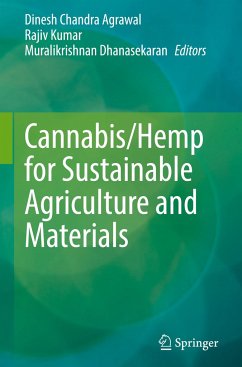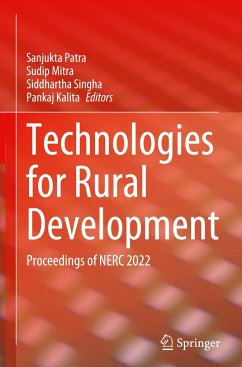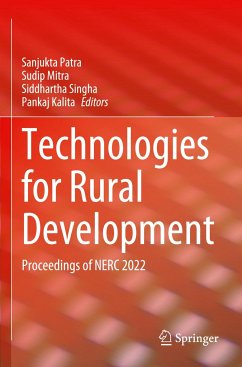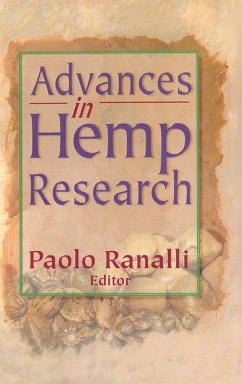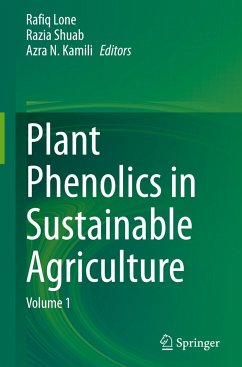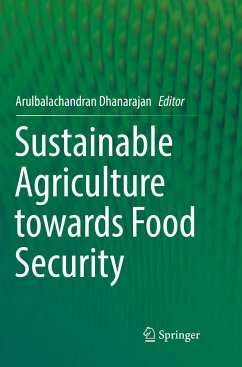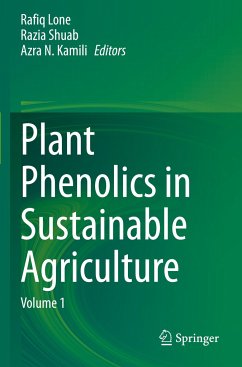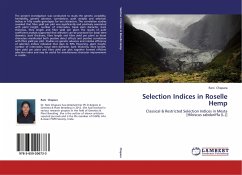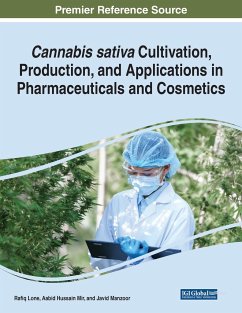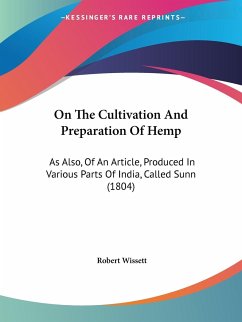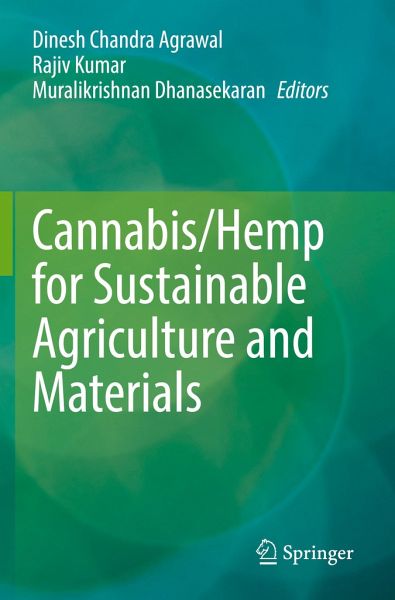
Cannabis/Hemp for Sustainable Agriculture and Materials
Versandkostenfrei!
Versandfertig in 6-10 Tagen
129,99 €
inkl. MwSt.

PAYBACK Punkte
65 °P sammeln!
The book contains review articles on the latest evidence-based scientific knowledge and future insights on industrial hemp applications ranging from sustainable agriculture, sustainable development, and commercial uses of hemp-derived innovative products. The research articles evaluate and review the latest research and development on hemp's agronomy, ecophysiology, the opportunities and challenges of hemp cultivation in the different regions of the world, including Africa.The book reviews complete patent literature on hemp from the publication of the first patent in 1856 till the end of 2020,...
The book contains review articles on the latest evidence-based scientific knowledge and future insights on industrial hemp applications ranging from sustainable agriculture, sustainable development, and commercial uses of hemp-derived innovative products. The research articles evaluate and review the latest research and development on hemp's agronomy, ecophysiology, the opportunities and challenges of hemp cultivation in the different regions of the world, including Africa.
The book reviews complete patent literature on hemp from the publication of the first patent in 1856 till the end of 2020, providing an excellent insight into hemp's business growth and future potential for industrial applications along with region- and sector-wise patenting activity concerning industrial hemp. In addition, articles describe the applications of hemp-derived green materials for building construction, wastewater treatment, and water purification.
The book will be useful as a referencebook for students, researchers, farmers, business houses, and individuals interested in industrial hemp for commercial aspects, sustainable development, farming, and other hemp-derived innovative products.
The book reviews complete patent literature on hemp from the publication of the first patent in 1856 till the end of 2020, providing an excellent insight into hemp's business growth and future potential for industrial applications along with region- and sector-wise patenting activity concerning industrial hemp. In addition, articles describe the applications of hemp-derived green materials for building construction, wastewater treatment, and water purification.
The book will be useful as a referencebook for students, researchers, farmers, business houses, and individuals interested in industrial hemp for commercial aspects, sustainable development, farming, and other hemp-derived innovative products.





